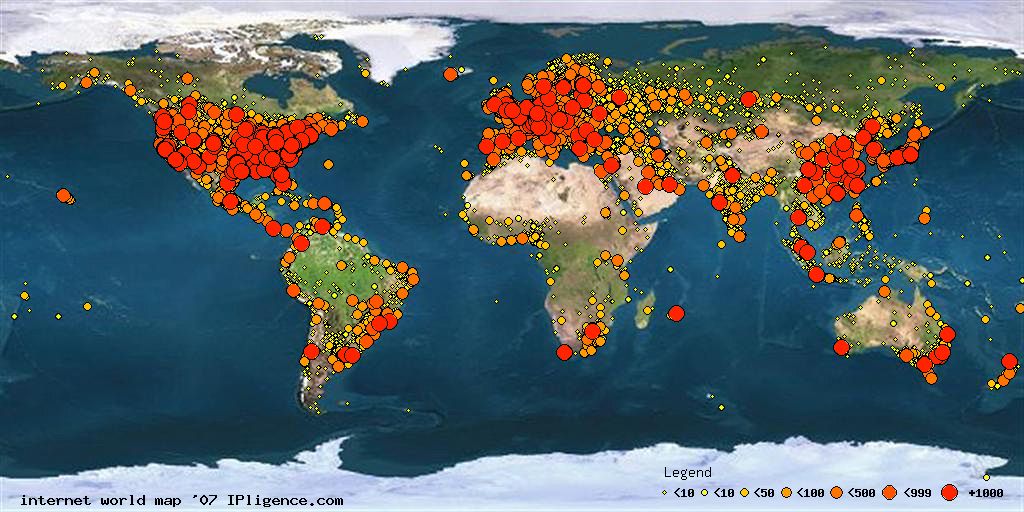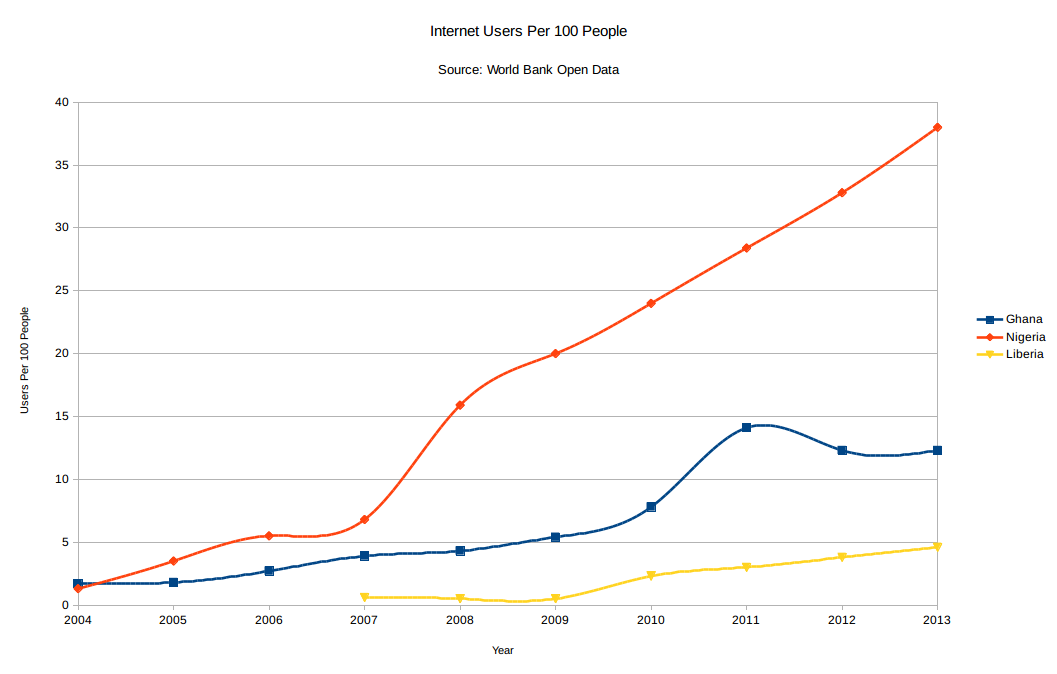I completed and successfully defended my Ph.D. dissertation in May 2018.
Tag Archives: research
Teaser
Internet Census
An anonymous researcher (one person though they use “we” throughout their documentation) has released the results of an extraordinary study. By temporarily constructing a botnet on openly available devices around the world, they were able to map usage of the global internet over IPv4 at a scope and level of detail that has no rival outside of proprietary network operations databases.
Continue reading

Reflection – Appadurai, Pogge, Singh
The ethical position taken by academics and intellectuals with respect to the objects of their attention – research, theory, intervention – arises from a combination of environmental, institutional, and personal (i.e. political) commitments. When those commitments come into conflict, the ethical positions taken or implied by knowledge producers face the possibility of transformation. And, where globally interconnected lives at both macro- and micro-scopic levels are concerned, the conditions of possibility of change are omnipresent and intense. Arjun Appadurai (2000) summarizes the root of these conditions as a “growing disjuncture between the knowledge of globalization and the globalization of knowledge.”
Continue reading

Charts
This collection of visualizations of open data feeds some background work for the dissertation proposal. It’s an attempt to find open areas for questioning. Some issues that can be noted from these graphs: Why does the pattern of Internet adoption in the region under discussion diverge from that of the global aggregate? What are the mutual effects of human development, political changes, economic patterns, and technological movements over time? Finally, what, if anything, do these numbers tell us about the relations between those in power and those without power in the region? Though the straightforwardly quantitative measurements here appear simplistic, the concatenation of assumptions and abstractions that found them lead to further complexity, not less. So:
The relative positions of the countries that I am studying, in terms of the U.N. Human Development Index:

Reflection – World Bank Development Report 1998-1999
A decade ago, we imagined technology in the context of development as a duality: challenge and opportunity. The World Bank’s research and rhetoric laid bare the stakes of their development strategy, through which knowledge in its macro-level forms – instrumental and qualitative – could be either directed through technology, or allowed to continue to accrue as an asset for already-well-positioned groups. Their understanding of the relationship between power and governance played a crucial part of this strategy. However, as the implications for policy put forward by the report make clear, this epistemological schema does not inquire after the roots of globalization or the impacts of changing forms of sovereignty. Continue reading

Lessons, Connections and Directions
The summer now underway, it’s a good time to take stock of gains, setbacks, and lessons learned from the semester. This post simply reviews the three sets of work undertaken over the past few months, and then try to detail the priorities and next steps necessary to continue progress towards the dissertation. Between materials, structures, and approaches, more incommensurability than contiguity prevails – yet weak ties persist in imagination and in theory. Broadly speaking, both epistemological and methodological considerations justify holding all three in concert, as parts of the long-term and focused project. And yet this can only hint at a strategy, it seems, and my largest outstanding challenge will be to find the coherent framework that unifies or at least governs the relationship between each of these schools of thought. Continue reading
The Plan
Internet – Synthesis – Methods and Approaches
While composing the preliminary reviews of literature that surround this post (it being posted retrospectively – something pops up here about the instability of blog-time, no doubt) certain tendencies and distinctions among the many approaches to internet studies have cemented. As the time comes to distinguish my own approach and its component pieces from the existing ones, both those which contribute to it and those from which it makes more sense to distance ourselves, a synthesis of those reviews comes into form. Tracing those groups in the literature that hang together, marking the details and purposes and focus of the ongoing project, and then arguing for the validity of a fresh approach and method, this post will form a temporary holding point en route to the field statement’s proposal and procedure. But we begin just by restating the themes of the semester so far.
Continue reading

Internet – on Labor
At a relaxed dinner with a good friend recently, we discussed the difficulty of finding a job in Detroit over the last few years. We spoke about the population’s available, marketable skills, and compared the price of land/rent to the type of organizations with the capital to buy it up. Then, we touched on a curious potential outcome of the current grim circumstances. In ten or fifteen years, we posited, when the city has grown again and its workforce is active again, a primary economic driver could well be the Silicone titans. This unusual placement of internet-driven internet drivers would seem out of place in the Motor City, except for a few key factors. First, technology industries require massive investments of capital for infrastructure and of labor for support in addition to the engineers and designers who are their most visible participants. Second, the data in the United States flows through Detroit, necessitating more of those support staff as that stream grows. And finally, the low cost of land and utilities, and the propensity of large IT firms to model their operations on 19th and 20th century factories, means that the companies have incentive to move to such an area already. Some small moves in this direction could trigger large changes to the economic situation there. Continue reading

